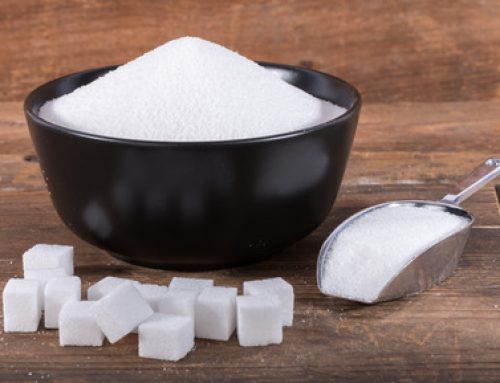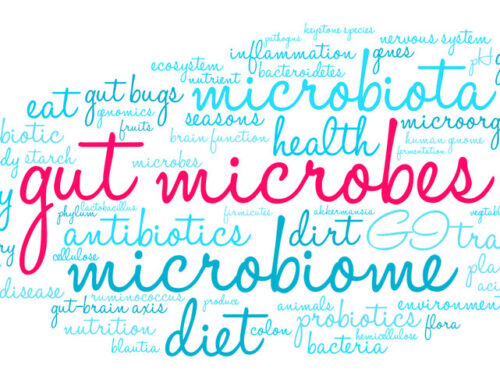Natural artificial sweeteners may help since quitting refined sugar can be tough. Fortunately, quite a few sweeteners found in nature are actually good for your health. They’re low in calories, low in fructose, and taste very sweet.
5 Natural Artificial Sweeteners That Are Truly Healthy
1. Stevia
Stevia is a very popular low-calorie natural artificial sweetener. It’s extracted from the leaves of a plant called Stevia rebaudiana. This plant has been grown for its sweetness and medicinal purposes for centuries in South America. Several sweet compounds are found in stevia leaves. The main ones are stevioside and rebaudioside A. Both are hundreds of times sweeter than sugar, gram for gram. Therefore, stevia is very sweet but has virtually no calories.
Additionally, a few human-based studies suggest stevia has health benefits, including:
• Stevia can lower high blood pressure in people with hypertension by 6–14%. However, it doesn’t affect normal or only mildly elevated blood pressure levels.
• Stevia has also been shown to lower blood sugar levels in people with diabetes.
• Several older studies in rats show that stevia can improve insulin sensitivity, reduce oxidized LDL (bad) cholesterol, and reduce plaque buildup in the arteries.
However, many people greatly dislike the taste of stevia. The flavor depends on the brand though, so you may need to experiment to find a type of stevia you like.
2. Erythritol
Erythritol is another low-calorie sweetener. It’s a sugar alcohol found naturally in certain fruits. However, powdered erythritol available for purchase is most likely made via an industrial process. It contains 0.24 calories per gram, or about 6% of the calories in an equal amount of sugar, with 70% of the sweetness. Erythritol tastes very much like sugar, although it can have a mild aftertaste.
Erythritol doesn’t spike your blood sugar or insulin levels or affect levels of blood fats like cholesterol or triglycerides. It’s absorbed into the body from the intestines but eventually excreted from the kidneys unchanged.
Studies show that erythritol is very safe and may even be linked to several health benefits.
• For example, some older studies in humans and animals have found that erythritol could improve blood vessel function and protect against damage caused by oxidative stress.
• However, although it’s often better tolerated than other sugar alcohols, it could cause digestive issues if you consume too much at a time, especially if combined with other types of sugar like fructose.
• Additionally, one study in 264 young adults showed that higher blood levels of erythritol were associated with increased belly fat, which may be due to a genetic predisposition to convert sugar into erythritol.
3. Xylitol
Xylitol is a sugar alcohol with a sweetness similar to that of sugar. It contains 2.4 calories per gram, or about two-thirds the calories of sugar.
• Xylitol appears to have some benefits for dental health, reducing the risk of cavities and dental decay.
• According to some animal studies, it may also improve bone density, helping prevent osteoporosis.
• Furthermore, research shows that xylitol can increase levels of several compounds in the digestive tract to help support your gut microbiome.
• Xylitol also doesn’t raise blood sugar or insulin levels. However, as with other sugar alcohols, it can cause digestive side effects at high doses.
4. Yacon syrup
Yacon syrup is another unique sweetener. It’s harvested from the yacon plant, which grows natively in the Andes in South America.
This sweetener has recently become popular as a weight loss supplement. One older study in women with obesity and slight dyslipidemia, or abnormal levels of blood fats, found that it caused significant weight.
It’s very high in fructooligosaccharides, which function as soluble fibers that feed the good bacteria in your intestine. Yacon syrup can help prevent constipation and has various benefits due to its high amount of soluble fiber. Don’t eat too much at a time though, as it can cause digestive problems.
5. Monk fruit sweetener
Monk fruit is a type of fruit native to Southeast Asia. It’s often used to make a natural sweetener called monk fruit extract. It’s free of calories and carbohydrates, and some research suggests that it may also help support better blood sugar management.
Monk fruit also contains antioxidant compounds known as mogrosides, which have been shown to reduce markers of inflammation in test-tube studies.
Plus, other test-tube studies have found that certain compounds extracted from monk fruit could slow the growth of specific types of cancer cells.
Although there’s limited research on the effects of monk fruit in humans, it’s generally considered safe and hasn’t been associated with any negative side effects.
Click here to read more about healthy natural artificial sweeteners.







